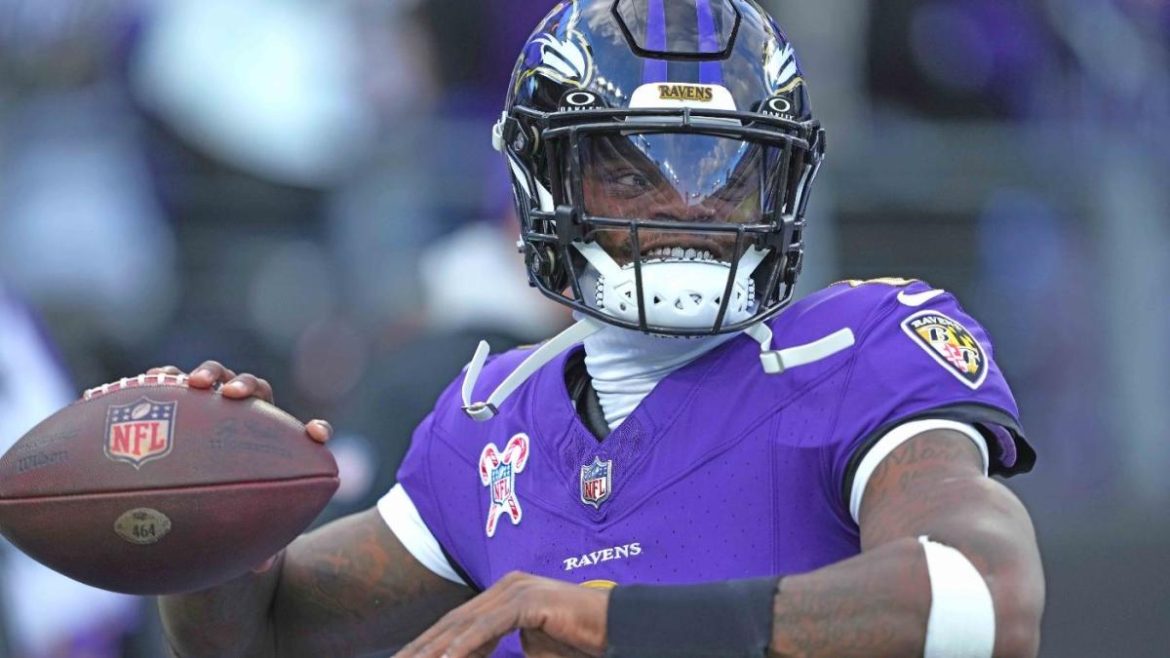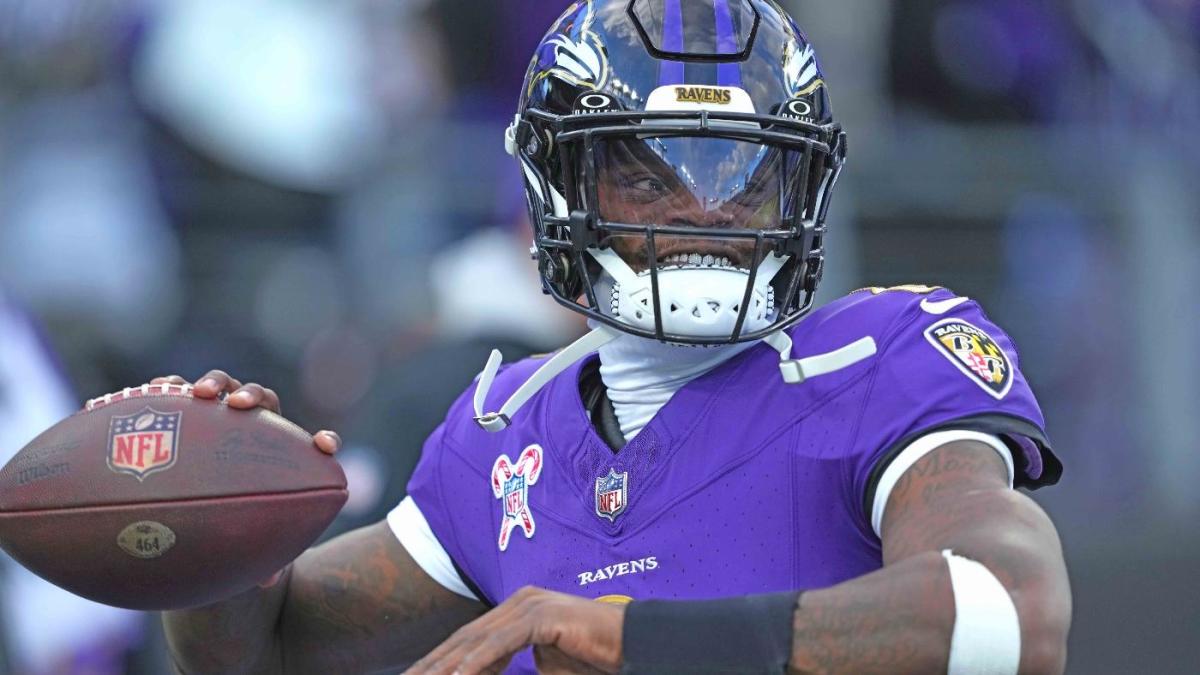The Lamar Jackson Contract Saga: Navigating Negotiations Without an Agent
Lamar Jackson, the Baltimore Ravens’ dynamic quarterback and two-time NFL MVP, stands at a fascinating crossroads in his professional career. His current contract, a five-year, $260 million deal signed in 2023, runs through the 2027 season and includes $185 million in total guarantees, with $135 million fully guaranteed at signing. Despite such a lucrative deal, the quarterback remains a pivotal figure in team negotiations surrounding extensions and future contracts. However, what makes Jackson’s case particularly unusual—and a focal point of this analysis—is his insistence on representing himself in contract talks.
The Financial Landscape of Jackson’s Current and Future Deals
Jackson’s existing contract is sizable but reportedly lags behind recent quarterback extensions in guaranteed money and length. For example, Brock Purdy inked a five-year, $265 million extension recently, propelling him ahead of Jackson to become one of the NFL’s highest-paid players. Negotiations for a new extension for Jackson reportedly explore increasing new money to around $195 million over three years (2028-2030), which could culminate in a deal worth approximately $342.5 million over six years—figures that experts deem befitting Jackson’s talent and stature.
One critical issue in these deliberations lies in managing the Ravens’ salary cap. Jackson’s current deal counts for more than $74.5 million against the 2026 cap. The team, led by General Manager Eric DeCosta, known for cross-sport savvy in contract structuring, is exploring creative methods to generate cap space, some of which involve pushing some of Jackson’s salary into signing bonuses or restructuring elements of his deal.
Representing Oneself: The Pros and Cons of Jackson’s Approach
Lamar Jackson is one of the rare NFL stars choosing to negotiate without an agent. Although self-representation offers him direct control over his narrative and decisions, it comes with inherent risks and complications. The absence of a professional agent creates barriers in accessing standard negotiation channels and may hinder the establishment of trust and rapport necessary for complex financial discussions.
Negotiations have reportedly stalled due to Jackson pausing talks after not reaching agreeable terms, a move likely compounded by his choice to forgo traditional representation. Some analysts argue Jackson would have benefited from an agent’s expertise similar to other elite quarterbacks like Josh Allen and Kyler Murray, who secured their second contracts more swiftly and with more favorable guarantees.
Moreover, representing oneself magnifies the challenge of balancing risk—especially injury risk. Jackson’s playing style, characterized by high mobility and exposure to physical contact (with over 700 hits since starting as a rookie), raises concerns about the wisdom of favoring short-term, pay-as-you-go contract strategies without secured guarantees that an experienced agent might insist upon.
The Team’s Perspective: Urgency and Strategic Maneuvering
From the Ravens’ viewpoint, there is significant urgency to resolve Jackson’s contract status. The team’s financial planning and on-field strategy hinge heavily on locking in their franchise quarterback. Player-coach John Harbaugh has publicly affirmed Jackson as central to the Ravens’ future, emphasizing the importance of a new extension in the near term.
However, the Ravens must tread carefully. They aim to protect their asset’s value while avoiding encumbering their salary cap or upsetting team chemistry. There is speculation that the organization admires Jackson’s value and wants a contract on his terms—but practical constraints require both parties to strike a balance. The interest in employing bonus conversion strategies, offering non-fully guaranteed contracts with concessions on other terms, and mirroring contract structures akin to those of superstar Aaron Donald, point towards innovative negotiation methods to achieve mutual benefit.
The Contract Extension Stalemate: Factors and Future Prospects
Jackson’s trade request in early 2023, which surprised many fans and analysts, underscored the friction in contract negotiations and the high stakes. The quarterback’s frustration appeared intertwined with contract impasses, coupled with the Ravens’ cautious approach. Since then, public statements from both Jackson and the Ravens management suggest ongoing dialogue but a complex, unfinished process.
Industry insiders speculate that the stalemate partly arises because Jackson may be playing a prolonged waiting game to leverage potential injury risks against the team’s desire for certainty. In this context, Jackson’s self-negotiation approach might signal his confidence in controlling his destiny or a negotiation tactic to elicit a more lucrative offer.
For the Ravens, signing Jackson to a new contract not only secures on-field leadership but also alleviates a looming $74.5 million cap problem. For Jackson, maximizing guaranteed money and contractual security while preserving flexibility appears paramount.
The Impact of Absence of an Agent and Strategic Recommendations
The most poignant takeaway from Jackson’s situation is the apparent disadvantage of lacking a professional agent. Agents bring critical expertise not only in contract negotiation but also in navigating the NFL’s complex business environment, protecting the player’s interests, and managing public relations.
If Jackson continues without an agent, he must ensure his contract demands explicitly cover all critical aspects to mitigate negotiated concessions, particularly given his playing style’s risk factors. Alternatively, hiring a seasoned agent in future talks might expedite agreements with terms reflecting his market value and guarantee levels commensurate with other top-tier NFL quarterbacks.
Conclusion: A Deal on Lamar Jackson’s Terms—But with Expert Guidance
Lamar Jackson’s contract extension saga epitomizes the tension between player autonomy and the pragmatic necessity of professional representation in elite sports negotiations. While his self-managed negotiations underscore a bold, independent approach, they also reveal inherent risks, inefficiencies, and potential lost value.
Looking ahead, a contract extension for Jackson that satisfies both the quarterback’s financial expectations and the Ravens’ organizational constraints will likely require a deal crafted on Jackson’s terms but facilitated by experienced expertise. Such a contract would secure his legacy in Baltimore, provide financial stability against injury risk, and ensure the Ravens maintain a superstar figure driving their franchise’s success.
Jackson’s journey challenges the norms of NFL contract negotiations and sets a compelling example of player empowerment—one that merits both admiration and reflection from athletes, teams, and agents alike.





